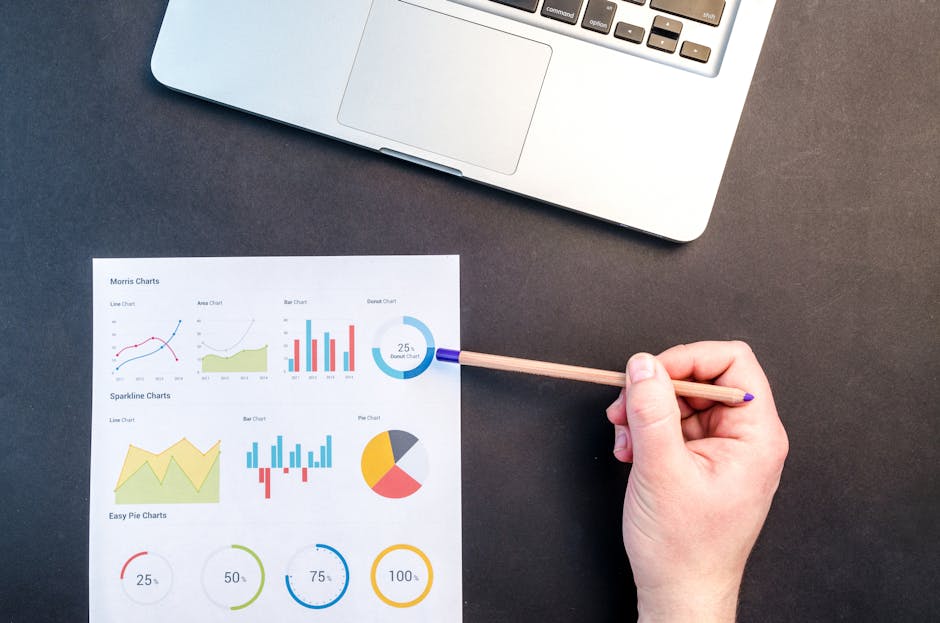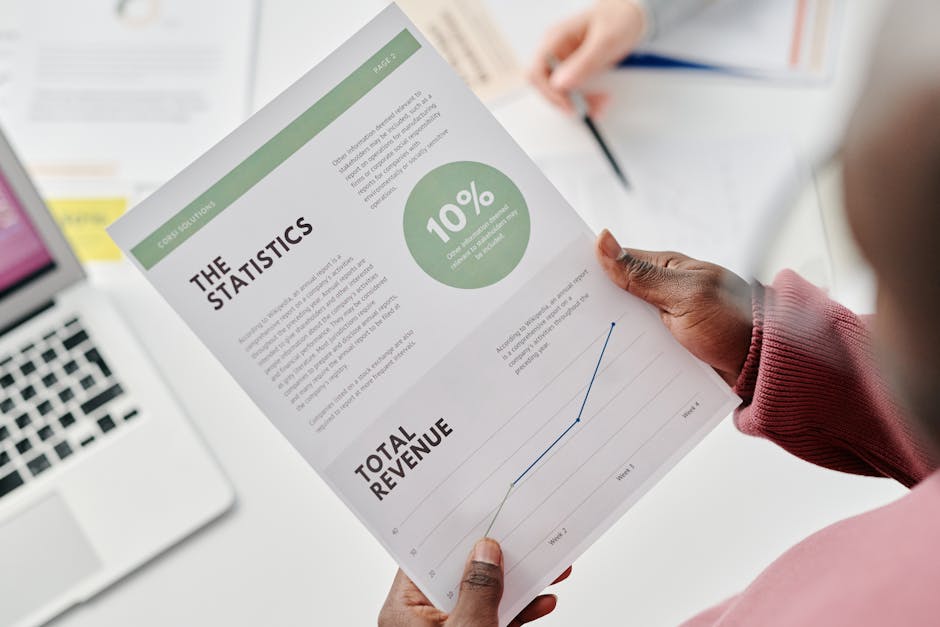Improving your work performance doesn’t have to feel like climbing Mount Everest. It’s about making small, intentional changes that add up to big results. Whether you’re struggling to meet deadlines, feeling overwhelmed, or just want to level up, there are practical strategies you can use to boost your productivity and efficiency. Stick around, and we’ll dive into actionable tips that can help you shine brighter in your professional life.
Key Takeaways
- Setting clear goals and priorities is essential for staying on track.
- Limiting distractions and avoiding multitasking can significantly enhance focus.
- Leveraging tools and technology simplifies workflows and saves time.
- Effective communication and collaboration foster a positive work environment.
- Personal growth and maintaining a healthy work-life balance are key to long-term success.
Setting Clear Goals and Priorities
Establishing Specific and Measurable Objectives
If you don’t know where you’re going, how will you know when you’ve arrived? Setting specific and measurable goals is like plotting a course on a map—it gives you direction and purpose.
Benefits of Setting Clear Goals
Clear goals help you focus your energy on what truly matters. They act as a compass, guiding you through the chaos of daily tasks. Plus, achieving these goals gives you a sense of accomplishment that fuels motivation.
Aligning Goals with Organizational Objectives
Your personal goals should align with your company’s objectives. This ensures that your efforts contribute to the bigger picture. For example, if your team’s focus is on improving customer satisfaction, your individual tasks should reflect that priority.
Planning and Prioritizing Tasks
Organizing Tasks Based on Urgency and Importance
Not all tasks are created equal. Use tools like the Eisenhower Matrix to categorize tasks by urgency and importance. Focus on high-priority items first, and delegate or defer less critical ones.
Using Tools Like To-Do Lists and Project Management Software
A simple to-do list can work wonders for your productivity. For more complex projects, tools like Trello or Asana help you stay organized and track progress. These tools are like having a personal assistant who never forgets a thing.

Enhancing Focus and Productivity
Limiting Distractions
Identifying Common Workplace Distractions
From endless email notifications to chatty coworkers, distractions are everywhere. Identifying your biggest productivity killers is the first step to eliminating them.
Implementing Strategies to Minimize Interruptions
Turn off non-essential notifications, set boundaries with colleagues, and create a dedicated workspace. Noise-canceling headphones can also be a lifesaver when you need to concentrate.
Avoiding Multitasking
The Drawbacks of Multitasking
Multitasking might seem like a superpower, but it’s actually a productivity killer. Switching between tasks reduces efficiency and increases the likelihood of mistakes.
Benefits of Focusing on One Task at a Time
When you focus on one task at a time, you enter a state of flow. This not only boosts productivity but also improves the quality of your work.
Tackling Difficult Tasks First
Importance of Addressing Challenging Tasks Early
We all have that one task we dread. Tackling it first thing in the morning clears your mental clutter and sets a positive tone for the rest of the day.
Boosting Confidence and Motivation
Completing a challenging task gives you a confidence boost that can carry you through the rest of your workday. It’s like eating your vegetables before dessert—you get the hard part out of the way.

Leveraging Tools and Technology
Using the Right Tools
Identifying Tools That Streamline Workflows
From time-tracking apps to automation software, the right tools can save you hours of work. For instance, tools like Slack streamline communication, while Grammarly ensures your emails are polished and professional.
Adopting Technology to Enhance Efficiency
Embrace technology that simplifies repetitive tasks. Automation tools can handle everything from scheduling meetings to generating reports, freeing you up for more meaningful work.
Delegating Tasks
Benefits of Sharing Responsibilities
Delegating isn’t about offloading work; it’s about sharing the load. This allows you to focus on tasks that align with your strengths while empowering others to contribute.
Empowering Team Members to Contribute
When you delegate effectively, you build trust and foster a sense of ownership among your team members. It’s a win-win situation for everyone involved.

Improving Communication and Collaboration
Communicating Effectively
Importance of Clear and Concise Communication
Miscommunication can lead to wasted time and frustration. Be clear and concise in your emails, meetings, and conversations to avoid misunderstandings.
Reducing Misunderstandings in the Workplace
Active listening is just as important as speaking clearly. Make sure you understand others’ perspectives before responding.
Fostering a Positive Work Environment
Encouraging Collaboration and Teamwork
A collaborative environment boosts creativity and problem-solving. Regular team meetings and brainstorming sessions can help everyone stay aligned.
Building Trust and Mutual Respect Among Employees
Trust is the foundation of any successful team. Show respect for your colleagues’ ideas and contributions, and they’ll do the same for you.

Developing Personal and Professional Growth
Offering Regular Training
Benefits of Continuous Learning Opportunities
The workplace is constantly evolving, and staying updated is crucial. Regular training sessions help you acquire new skills and adapt to changes.
Adapting to Changing Work Demands
Whether it’s learning a new software or improving your public speaking skills, continuous learning keeps you ahead of the curve. Check out these tips for managing stress in high-performance settings to stay sharp under pressure.
Maintaining Work-Life Balance
Preventing Burnout Through Balance
All work and no play makes Jack a dull boy—and a stressed one, too. Prioritize self-care and set boundaries to prevent burnout.
Sustaining Long-Term Performance
A healthy work-life balance isn’t just good for your well-being; it’s essential for sustained productivity. Learn more about strategies for maintaining work-life balance to keep your energy levels high.
Providing Recognition and Feedback
Acknowledging Achievements to Boost Morale
Everyone likes to feel appreciated. Recognizing your team’s efforts boosts morale and motivates them to keep up the good work.
Offering Constructive Feedback for Improvement
Feedback isn’t just about pointing out mistakes; it’s about helping others grow. Be specific and actionable in your feedback to make it truly effective.
Improving your work performance doesn’t happen overnight, but with consistent effort, you’ll see results. Start by setting clear goals, limiting distractions, and leveraging the right tools. Don’t forget to communicate effectively and invest in your personal growth.
For more tips on boosting productivity, check out how mindfulness can improve workplace well-being or learn about turning procrastination into proactive productivity. Small changes today can lead to big successes tomorrow!
(source)
FAQ: Unlocking Strategies to Boost Your Work Performance
What are some quick strategies to improve work performance?
Quick strategies include prioritizing tasks using tools like to-do lists, minimizing distractions, and setting clear, achievable goals. Additionally, taking short breaks can help maintain focus and energy throughout the day.
How does time management impact work performance?
Effective time management ensures that you allocate sufficient time to high-priority tasks, reducing stress and improving productivity. It helps you stay organized and meet deadlines without feeling overwhelmed.
What role does communication play in enhancing work performance?
Clear and open communication fosters collaboration, reduces misunderstandings, and ensures everyone is aligned on goals. It also helps in building strong relationships with colleagues and supervisors, which can positively impact overall performance.
How can I stay motivated to improve my work performance?
Set personal and professional goals that inspire you, celebrate small achievements, and focus on the positive outcomes of your efforts. Surrounding yourself with supportive peers and seeking feedback can also keep you motivated.
What are some habits that can negatively affect work performance?
Procrastination, multitasking, poor time management, and neglecting self-care can significantly hinder work performance. Identifying and addressing these habits can lead to noticeable improvements.
How does physical and mental health influence work performance?
Good physical health boosts energy levels, while mental well-being enhances focus and decision-making. Regular exercise, a balanced diet, adequate sleep, and stress management are crucial for maintaining peak performance.
Can learning new skills improve my work performance?
Absolutely! Acquiring new skills keeps you adaptable and competitive in your field. It also increases your confidence and opens up opportunities for career growth, which can positively impact your performance.
How can feedback help in improving work performance?
Constructive feedback provides insights into areas of improvement and highlights your strengths. Regularly seeking feedback helps you grow professionally and align your efforts with organizational expectations.
What tools or technologies can enhance work performance?
Tools like project management software, time-tracking apps, and communication platforms can streamline workflows and improve efficiency. Leveraging technology tailored to your role can significantly boost productivity.
How important is work-life balance for maintaining work performance?
A healthy work-life balance prevents burnout and ensures sustained productivity. Taking time to recharge and pursue personal interests leads to better focus, creativity, and overall job satisfaction.



